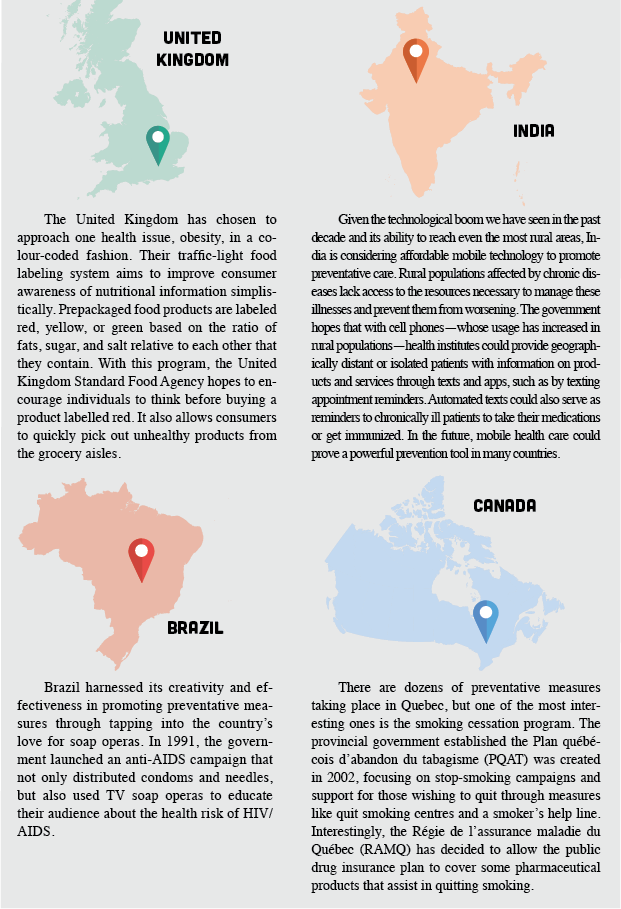Each winter, influenza viruses sweep across the globe, causing an estimated three to five million severe cases worldwide and 250,000 to 500,000 deaths, according to the World Health Organization (WHO)—and this is only one type of infectious disease. Faced with a spectrum of chronic illnesses, viral infections, and microbial pathogenesis, today’s healthcare infrastructure faces an overwhelming societal and economic challenge. To address this issue, many countries around the world have put an emphasis on innovating unique public health measures to focus on preventative care.
United Kingdom
The United Kingdom has chosen to approach one health issue, obesity, in a colour-coded fashion. Their traffic-light food labeling system aims to improve consumer awareness of nutritional information simplistically. Prepackaged food products are labeled red, yellow, or green based on the ratio of fats, sugar, and salt relative to each other that they contain. With this program, the United Kingdom Standard Food Agency hopes to encourage individuals to think before buying a product labelled red. It also allows consumers to quickly pick out unhealthy products from the grocery aisles.
India
Given the technological boom we have seen in the past decade and its ability to reach even the most rural areas, India is considering affordable mobile technology to promote preventative care. Rural populations affected by chronic diseases lack access to the resources necessary to manage these illnesses and prevent them from worsening. The government hopes that with cell phones—whose usage has increased in rural populations—health institutes could provide geographically distant or isolated patients with information on products and services through texts and apps, such as by texting appointment reminders. Automated texts could also serve as reminders to chronically ill patients to take their medications or get immunized. In the future, mobile health care could prove a powerful prevention tool in many countries.
Brazil
Brazil harnessed its creativity and effectiveness in promoting preventative measures through tapping into the country’s love for soap operas. In 1991, the government launched an anti-AIDS campaign that not only distributed condoms and needles, but also used TV soap operas to educate their audience about the health risk of HIV/AIDS.
Canada
There are dozens of preventative measures taking place in Quebec, but one of the most interesting ones is the smoking cessation program. The provincial government established the Plan québécois d’abandon du tabagisme (PQAT) was created in 2002, focusing on stop-smoking campaigns and support for those wishing to quit through measures like quit smoking centres and a smoker’s help line. Interestingly, the Régie de l’assurance maladie du Québec (RAMQ) has decided to allow the public drug insurance plan to cover some pharmaceutical products that assist in quitting smoking.









